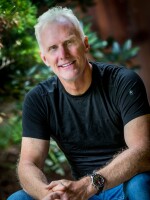MELISSA BLOCK, HOST:
Canada has tighter gun laws than the U.S. and suffers much less gun crime. But this summer, that country's largest city, Toronto, has seen a sharp rise in the number of shootings and gun homicides. It's being called the summer of the gun. And that's challenging Canada's idea of itself as a safe, relatively gun-free society. North Country Public Radio's Brian Mann reports now from Toronto, where even some conservative politicians say handguns should be banned outright. And a note - we'll briefly hear the sound of gunfire here in his report.
BRIAN MANN, BYLINE: Stacey King meets me in a playground in a working-class neighborhood of Toronto. Her girls were playing here in June across the street from their house when the shooting started.
STACEY KING: The shooters were over by the condos. And the target that they were looking for was in the playground with the kids, and then they started shooting.
MANN: Bullets struck her two daughters. They needed surgery but survived.
KING: They're traumatized. They're having nightmares. They're scared.
MANN: Statistics show the number of gun crimes in Toronto rising steadily since 2015. And this summer, shootings have led the news again and again.
(SOUNDBITE OF CAR ACCELERATING)
MANN: I've come to Danforth Avenue. It's in a part of Toronto known as Greektown. And on this night, it's a beautiful evening. There are people out shopping and eating at outdoor cafes. But earlier this summer, this is a part of Toronto that was transformed by violence.
(SOUNDBITE OF ARCHIVED RECORDING)
UNIDENTIFIED PERSON #1: The chilling video shows how quickly a gunman can turn a best-loved neighborhood into five blocks of carnage.
(SOUNDBITE OF GUNFIRE)
UNIDENTIFIED PERSON #2: We were eating, and the guy started shooting. And we heard...
MANN: That's from the CBC News broadcast. The mass shooting in July left two people dead, more than a dozen injured. The gunman later took his own life. On this night, Helen Cherry (ph) is out walking. She says her sense of her city is changing.
HELEN CHERRY: It's always been Toronto the good. You'd walk down the street, always felt safe, but yeah. Certainly in the last couple of years, I feel - like, even tonight, when I came out, I thought, OK, got to walk down the street.
MANN: Compared with American cities, Canada is really safe. Chicago sees ten times as many gun homicides as Toronto. Jooyoung Lee is an American who studies gun violence in Canada. He teaches here at the University of Toronto.
JOOYOUNG LEE: Even though we have seen an uptick this year, and more specifically this summer, Toronto still remains one of the safest cities around.
MANN: But Canada actually sees much more gun violence than, say, Australia or Britain. And Lee says the sense of Canada as a safer, more gun-free society than the U.S. is eroding.
LEE: You know, any time there is a shooting, what happens is that that event disrupts how people see a place. It changes a person's sense of safety in that place.
MANN: After this summer's violence, Canadian politicians have committed to spending tens of millions of additional dollars hiring new police and on gang-reduction efforts. But there's also a new debate here over gun control.
(SOUNDBITE OF ARCHIVED RECORDING)
JOHN TORY: I've said for some time that the city has a gun problem and that guns are far too readily available to far too many people.
MANN: That's Toronto Mayor John Tory speaking at a press conference after the Greektown shooting. He's a leader of one of Canada's center-right Conservative parties. As you can hear, the discussion of gun violence in Canada sounds very different than in the U.S. There's no Second Amendment here guaranteeing gun ownership as a right. There's no powerful gun lobby comparable to America's NRA. Canadians hoping to buy a firearm already have to go through detailed background checks, waiting periods. They need letters of reference. But now there's a call across the political spectrum in Canada for even tighter restrictions.
(SOUNDBITE OF ARCHIVED RECORDING)
TORY: You've heard me ask the question of why anybody would need to buy 10 or 20 guns, which they can lawfully do under the present laws. And that leads to another question we need to discuss. Why does anyone in this city need to have a gun at all?
MANN: Calls for an outright ban on handgun sales have grown in recent weeks. The city council in Montreal passed a resolution unanimously supporting the policy. Prime Minister Justin Trudeau's liberal government agreed to launch a new national study to review the idea. Jooyoung Lee at Toronto University says, historically, a lot of gun crime here has been tied to weapons smuggled illegally from the U.S. But a study by the Royal Canadian Mounted Police found that more violence in Canada now involves weapons purchased here that fall into the wrong hands.
LEE: The fact that there are more occurrences suggests that we could be looking at a situation where there are more firearms readily available on the streets, and young people who are at risk are getting their hands on guns and using them to settle disputes. So that data, to me, is troubling.
MANN: This week, there was another shooting at a Toronto shopping mall with two groups of men trading gunfire. While the debate continues over how to respond to the summer's violence, a lot of people I talked to here say their big fear is that gun crime will keep getting worse and will come to be seen as normal, an accepted part of life in Canada, as it already is in big cities in the U.S. Brian Mann, NPR News, Toronto. Transcript provided by NPR, Copyright NPR.





